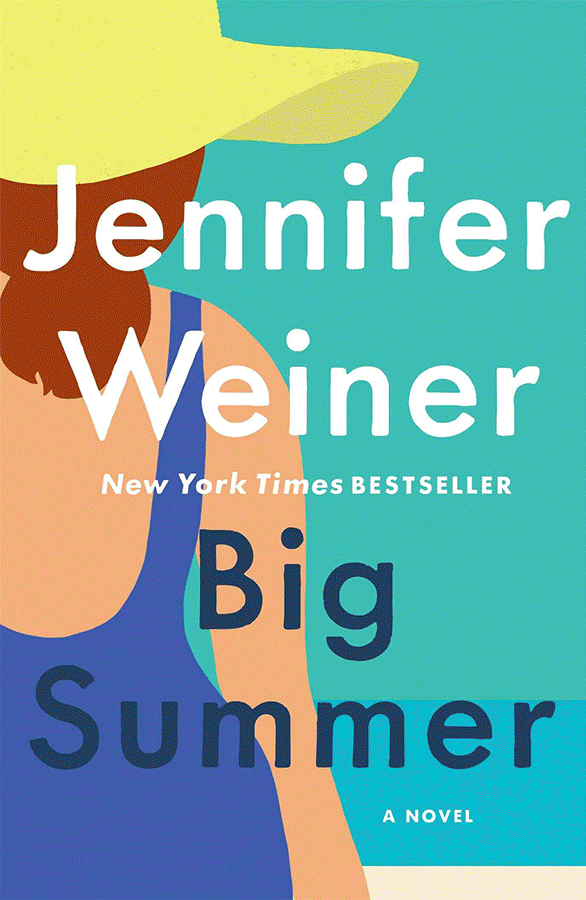Products are independently selected by our editors. We may earn an affiliate commission from links.
It’s almost the end of yet another summer, a season that entrepreneurial body image profiteers long ago learned to market as “swimsuit season.” (Translation: Whittle your body down to as fine a point as possible so you’ll be more inclined to buy things). Normally, I mark this three-month expanse of warm weather not by beach vacations and picnics in the park, but by the inventory of food I deny or permit myself at those events. A lobster roll on a trip to Maine? Ten Weight Watchers points, doable but not ideal. A s’more fresh off the campfire? Too many points, but fewer if I omit the Hershey’s chocolate and make do with one square of graham cracker. A BLT packed with ripe, juicy summer tomatoes? A whopping 21 points, i.e., don’t even think about it.
This summer, though, unfolded a little differently. As quarantine isolation got to me, I resolved to stop forcing myself to read the highbrow, so-called “improving” literature I kept heaped on my nightstand and turn to novelistic comfort food instead: After all, why punish myself further during a pandemic? For some, that might mean digging out the Dean Koontz or the Gillian Flynn (or the Meg Cabot, if YA is your thing). For me, it meant treating myself to secondhand copies of almost all of novelist Jennifer Weiner’s work.
I’ve been reading Weiner for years—I distinctly remember slouching down on a Greyhound trip home from my grandmother’s house in middle school, melting soft-serve in one hand and Weiner’s debut novel Good in Bed in the other—but I’ve always done so with a certain level of ingrained embarrassment. After all, Weiner’s books are the definitive pink-hued beach reads, and there’s no greater sin than creating art purely for the entertainment of women, right?
As I’ve gotten older, I’ve learned to put less stock in what the imagined snobby male literary critic in my head might think of my reading habits, but on some level, I’ve still held myself back from diving full throttle into books like Weiner’s. What I learned from rereading Good in Bed, though, as well as In Her Shoes, Mrs. Everything, and her most recent novel Big Summer, was a rebuke to all my literary pretensions. Catching up with Good in Bed protagonist Cannie Shapiro, a plus-size journalist mourning a major breakup and dreaming of professional success, felt very different as a fat adult than it did as a whippet-thin (though still diet-obsessed) tween.
For the first time, I realized just how subtly radical it was of Weiner to insist on giving every single one of her fat heroines a happy ending, book after book after book. If you were of the truly devoted chick-lit-hater persuasion, you could certainly argue that Weiner’s books are formulaic: In almost every one of them, the fat girl gets the guy, or the job, or the dream apartment, or the baby, or all of it at once. What’s rarely discussed, though, is just how achingly vital that formula feels to the fat reader.
When I delve into a Jennifer Weiner novel, I know the way her protagonist’s body looks—the way my body looks, for that matter—isn’t going to be the crux of the story. Sure, her characters might count calories and drag themselves to Weight Watchers just like I do, but that’s merely part of their journey, not its sum total. I’ve never met a Weiner protagonist who had to shed half her body mass to find herself in a wedding gown; she generally holds back from the pure saccharine, gifting her characters with razor-sharp ripostes and circles of wisecracking best friends who bring them back to reality, but the fat women Weiner writes about are never presented as anything less than worthy.
Obviously, Weiner’s books haven’t fully cured my propensity to despair of my size, but they’ve provided me with a rough script of a future—or even a present—in which my size doesn’t define me. Would I drop some pounds if given the opportunity? Sure! I’m a mere mortal living in a society that’s deeply sick when it comes to weight, after all. Still, partly thanks to Weiner, I don’t kid myself that dropping those pounds would automatically fix every other problem in my life, and I’m learning to let go of the devastating yet comforting fiction that I can’t really start my life until I lose weight.
Weiner’s literary fights are myriad, and even I—a devoted fan—don’t tend to agree with all of her prolifically tweeted opinions. Furthermore, it’s no secret that most of Weiner’s protagonists tend to be white Jewish girls from suburban upbringings (although they’re frequently working-class, in a partial reflection of Weiner’s own struggle-filled background, which she delves into openly in her memoir Hungry Heart).
I’ve been lucky enough to discover a wealth of more racially and ethnically diverse writers who center on fat positivity, from Roxane Gay to Jessamyn Stanley to Adrienne Maree Brown, but I will always owe Weiner a deep debt of gratitude for being the first person to show me that a fat woman could be worthy of a story that didn’t center around her losing weight. Cannie Shapiro and her fictional cohort taught me that my weight didn’t have to bar me from living the life I wanted, and that’s something I hope to instill in my children someday. If I’m ever lucky enough to have a daughter, I hope she spends her summers reading and eating whatever she’s hungry for with joyful abandon, until she’s truly and completely full.
.jpg)

